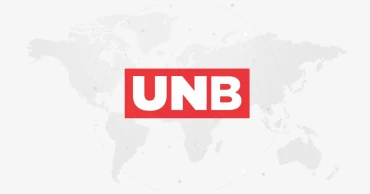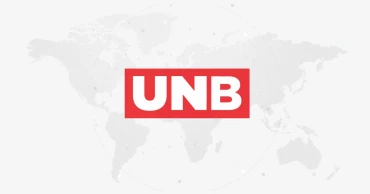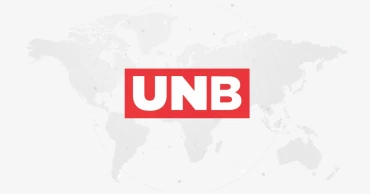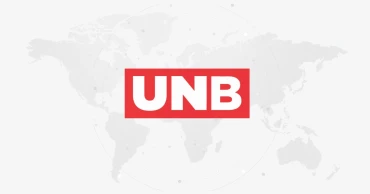private sector
Delta Plan implementation: Experts for more private sector engagement
Dhaka, Aug 06 (UNB) – Experts have called for more engagement of the private sector to attain the goals of the Bangladesh Delta Plan (BDP) 2100.
They were speaking at the "Bangladesh Delta Plan 2100: Private Sector Involvement to achieve a Safe, Climate-Resilient and Prosperous Delta" organised by the Federation of Bangladesh Chambers of Commerce and Industry (FBCCI) in Dhaka Saturday.
FBCCI President Md Jashim Uddin called for direct involvement of the private sector for the effective implementation of the BDP 2100.
Private sector engagement will enhance the pace and improve the quality of river management, water supply in urban and rural areas, waste management, flood control and drainage management, Jashim said.
Read: PM seeks international support for Bangladesh Delta Plan 2100
The BDP 2100 aims to ensure long-term water and food security, economic growth and environmental sustainability while effectively reducing vulnerability to natural disasters and building resilience to climate change and other delta challenges issues through robust, adaptive and integrated strategies and equitable water governance.
And dredgers and other heavy machinery used in the implementation of the projects undertaken to achieve the Delta goals are heavily dependent on import. So, the FBCCI president urged the government to keep the tariff rate of these products at a reasonable level. "The total duty on dredgers is now 31 percent, which was earlier 1 percent."
Planning State Minister Shamsul Alam also called for a review of the import duty on dredgers.
"The government has only 30 dredgers, but more than 200 dredgers are needed for this work. So, the entire dredging work should be left to the private sector," he said.
Brac University Emeritus Professor of Ainun Nishat suggested revising the BDP 2100 every five years.
Environment, Forest and Climate Change Secretary Farhina Ahmed said a $230 billion private investment is needed to implement the BDP 2100. "So, more involvement of the private sector is a must."
3 years ago
Relaxation of GTF loan conditions to help private sector exporters: BUILD
The relaxation of loan conditions for the state-owned commercial banks (SCBs), for the green transformation fund (GTF), will help the private sector exporters gain competitive advantages, ensure environmental compliance, and be sustainable, according to Business Initiative Leading Development (BUILD).
The Bangladesh Bank manages the GTF of $200 million and €200 million. The fund is intended to facilitate access to financing in foreign exchange by all manufacturers and exporters of all sectors to facilitate green or environment-friendly initiatives and harness green transformation.
According to the central bank, $89.69 million has been disbursed from the GTF so far.
The Bangladesh Bank has relaxed two conditions for the SCBs to participate in the GTF.
Firstly, the SCBs with more than 10% non-performing loans will be able to borrow from the GTF.
Secondly, the SCBs that have shortfalls in loan or investment provision, capital and liquidity will also be eligible to borrow from this fund.
READ: Exporters may transfer up to 75 pc of foreign employees’ remunerations from ERQ accounts
Through the 7th Financial Sector Development Working Committee meeting in 2019 and the 3rd Sustainability and Green Growth Working Committee meeting in 2021, BUILD suggested that the Bangladesh Bank relax the loan policy for the SCBs for the GTF as many textile and non-textile firms are the clients of these banks.
The public-private dialogue platform hopes that the loan policy relaxation for the SCBs will expedite more loan disbursement in future.
READ: Govt cuts source tax on exports again; RMG exporters to get relief
4 years ago
Public, private sectors urged to hire NRBs to utilize their expertise
Speakers at a webinar urged the government and private sector entrepreneurs to hire the non-resident Bangladeshis (NRBs) in different projects offering them proper value and facilities to utilize their expertise.
They made the call at the virtual seminar titled: “Energy Sector HR Development:Can NRB Professionals Support?”, organised by Energy and Power magazine on Saturday.
They observed that foreign nationals are being appointed in many public and private projects at higher value. But NRBs, who have expertise on technical matters, are not offered with due value and facilities.
“If they are offered with proper value and due facilities, they would be interested to return home to utilize their expertise”, said Prof Dr M Tamim, eminent energy expert and special assistant to former chief advisor of caretaker government.
Dr. Tamim, also a professor of Bangladesh University of Engineering and Technology (BUET), expressed his resentment over the deteriorating situation in the educational institutions in the country in regard to expressing opinions on different technical issuers.
“We cannot discuss anything with an open mind. Universities are the places to discuss with open mind. But that places are being run with political identity”, he observed.
He said that experts have to think of political line while making opinion on technical issue. “Why don’t we talk in a transparent manner?” We have to bring change in this area”, he said.
The virtual seminar was also addressed by expatriate Bangladeshis Prof Firoz Alam, Prof Jahangir Hossain, Prof Tapan Saha, Saleque Sufi, and Power Cell Director General Mohammad Hossain while Energy and Power editor Mollah Amzad Hossain conducted the function.
Dr Tamim said Bangladesh’s education sector is also lagging behind in producing quality graduates as the local industry owners don’t find right candidates when they try to recruit from locally educated persons.
He said BUET has taken a programme to make a huge change in its educational structure to produce outcome-based market-oriented workforce.
“You will see a big change within next 2 years”, he added.
4 years ago
ICCB seeks climate change mitigation, role of private sector
The world’s most vulnerable populations are facing ever-increasing risks, food insecurity and have fewer chances to break out of poverty and build better lives with global temperatures rising, says ICCB.
Their challenges also include changing weather patterns, sea-level rise, increases in droughts and floods, according to the International Chamber of Commerce, Bangladesh (ICCB).
While involvement of multinational corporations and major international business groups in international climate action efforts have grown substantially, they are still an incomplete picture of what the broader business community, including MSMEs is capable of contributing at national and global levels, says ICCB in its quarterly news bulletin (April-June’21) published on Monday.
While the International Chamber of Commerce, the world business organization welcomes announcements at the U.S. Leaders’ Climate Summit and G7 meetings of increased pledges for climate change mitigation and finance, these pledges do not yet place the world on track to achieve committed UN Climate Change Conference (UNFCCC) Paris Agreement actions, says the ICCB.
According to Climate Action Tracker, the sum of all the targets submitted so far would limit global warming to an estimated 2.4°C by century’s end.
This is still short of limiting global temperature rise by 2°C – ideally 1.5°C – by the end of the century as per the Paris Agreement, according to the ICCB.
More than a decade ago, developed countries committed to jointly mobilizing $100 billion per year by 2020 in support of climate action in developing countries.
But, according to the UN, the $100bn target is not being met (the latest available data for 2018 is $79bn), even though climate finance is on an “upward trajectory.” So, there is still a big gap in finance.
The annual $100bn commitment, “is a floor and not a ceiling” for climate finance, according to the UN.
The UN Environment Programme (UNEP) estimates that adaptation costs alone faced by just developing countries will be between $140 billion to $300 billion per year by 2030, and $280 billion to $500 billion annually by 2050.
“This troubling gap should give the international community impetus to consider how to unleash and engage further action both now and over the longer term across society. In the run-up to the next, UNFCCC COP26 in Glasgow, and over the course of the Paris Agreement five-year review cycle, governments have the unique opportunity to widen the circle of implementation for inclusive ambition, with a particular focus on countries’ Nationally Determined Contributions (NDCs) as a vehicle,” the ICCB says.
ICC – representing more than 45 million companies in over 100 countries and in its roles as Permanent Observer to the UN General Assembly and official UNFCCC Focal Point for Business and Industry – believes that UNFCCC and Paris Agreement Parties should revisit the scope and implementation of their climate policy strategies to assess how to enhance involvement of businesses of every sector, size and jurisdiction, in particular in NDC development, implementation and tracking at both national and international levels.
The pandemic and its disruptive impact on societies, economies and businesses have compounded the difficulty of developing and delivering on NDCs, which makes it even more important to design practical and inclusive NDCs, said the ICCB.
Overcoming these challenges will require mobilization and agreement to commit to redoubled efforts across society and in particular from governments and business, it said.
MSMEs are the foundation of the global economic system– they make up 90% of businesses worldwide, comprise an estimated 80 percent of employment in many countries, and collectively employ two billion people.
“Yet, they are not a dominant voice and presence in the UNFCCC process,” says the ICCB.
It is suggested, governments to encourage MSMEs to take on appropriate climate mitigation and adaptation measures; develop good practices that are flexible to innovation across NDCs, in particular for MSMEs tackling the social and economic impacts of the pandemic and create a dedicated and recognized space inside the UNFCCC for enhanced consultation and dialogue with business and employers, inclusive of MSMEs.
This private sector platform could also provide for practical and realistic dialogue on converging climate and recovery agendas, according to the ICCB.
4 years ago
Bangladesh has potential to become $800bn economy by 2030: Experts
Bangladesh urgently needs to go for a fresh round of reforms to strengthen the private sector to tap its economic potentials and accelerate the export-led growth, said a report on Wednesday.
The report titled ‘Bangladesh Country Private Sector Diagnostic (CPSD), prepared by IFC and the World Bank, also said Bangladesh’s post–Covid recovery will force a reimagining of its developmental model, highlighting the importance of the private sector and making the reform agenda even more urgent.
Taking part in the virtual report-launching event, experts said Bangladesh has the potential of becoming an economy of $800 billion by 2030 from the current $300-billion one if proper steps are taken to diversify its export basket and ensure the ease of doing business through necessary reforms.
Launching the report, Prime Minister's Private Industry and Investment Affairs Adviser Salman F Rahman said the diversification of export is very important, though the country has been facing challenges in this regard. “Our dependence on the RMG has been highlighted for a long time that we need to diversify our exports …diversification should be our priority now.”
He said the RMG sector has got tremendous support from the government for its expansion, but similar support has not been given to other areas, and this is something the government is now seriously looking at. “What we really need to do is to identify the reasons for which the garment sector has been so successful and we can apply the same principles to the other sectors.”
Also read: Covid-19 affected 60 million-plus domestic workers in informal economy: ILO
Salman said protectionism for the domestic industry is necessary since the country is going to graduate to a middle-income one. “The pharmaceutical industry which has been identified as a real growth sector since it has got that protectionism.
“Bangladesh had a positive GDP growth rate last year despite the adverse impact of the Covid-19 pandemic and it was the only country in South Asia which did not experience a recession. We’ve prepared the Eighth Five Year Plan keeping all the challenges of the pandemic in mind,” he said.
The PM’s adviser said the CPSD recommendations are well aligned with the priorities of the government’s Eighth Five Year plan for setting a trajectory towards a prosperous Bangladesh by 2041.
As the country is aspiring to achieve double-digit growth, Salman said, the government has taken various steps, including developing the infrastructure, increasing foreign direct investment and creating an investment-friendly climate.
He said the economic zones and mega connectivity projects like Matarbari Port and Padma Bridge that are now under construction will be the gamechangers in the coming years.
He said the agro-processing industry is making good progress and it will be another gamechanger for Bangladesh.
Also read: Govt. goes for more consumption and investment to recover economy from pandemic loss
Mamun Rashid, Managing Partner, PricewaterhouseCoopers Bangladesh Private Limited, said the report has focused on the private sector capacity building as well as the government’s capacity building.
“When we’re talking about reforms and strengthening capacity building, I try to draw your attention towards the capacity building of our private sector, efficiency improvement of our private sector as well as improving the overall balance sheet of the private sector,” he said.
IFC’s Vice President (Asia and Pacific), Alfonso Garcia Mora said the need for reforms will become even more compelling for Bangladesh to overcome the fallouts of the Covid-19 pandemic. “Finding new sources of income and growth will be an urgent priority.”
He also said the private sector, which already accounts for more than 70 percent of all investment in Bangladesh, supported by a strong financial sector, will need to play an important role in spurring the recovery so the country can grow, export and create quality jobs.
IFC Country Manager Wendy Werner said it is clear the private sector has an important role to play to meet the rising demand for quality healthcare and improving the efficiency of delivering health services, as health financing in the country is low compared to others at a similar level of development.
“Bangladesh could also target high-end markets and introduce new technology in the readymade garment sector, and seize opportunities in footwear, leather electrical goods, and agribusiness exports,” she observed.
Also read: Budget document: Preparations under way to face the challenges of developing economy
World Bank’s Country Director Mercy Tembon said readymade garments have contributed significantly to Bangladesh’s economic growth. “For a more resilient, inclusive and sustainable growth, Bangladesh will need to diversify its export basket and develop a robust and sophisticated private sector, relevant in the post–Covid recovery phase when public resources will be needed most in the social sectors.”
The report says key priority areas for the reform agenda include creating a favourable trade and investment environment for domestic and foreign investors, modernising and expanding the financial sector and removing impediments for developing infrastructure.
“Transport and logistics, energy, financial services, light manufacturing, agribusiness, healthcare and pharmaceuticals sectors are among those with the strongest potential for private investment that could play a significant role in boosting economic growth,” the report observes.
4 years ago
Vaccine production in Bangladesh: Experts 'vehemently against private sector’s engagement'
Though local pharmaceutical companies are showing a growing interest in either procuring or manufacturing Covid vaccines, local health experts say it is the government, not the private sector that should collect or produce jabs for ensuring their quality, affordability, and accessibility.
They also voiced doubt about the capabilities of the three companies that proposed the government to manufacture Russia's Sputnik V vaccine in Bangladesh.
The analysts suggested the government assess whether the Institute of Public Health (IPH) or state-owned Essential Drugs Company Limited (EDCL) can be modernised within a short period of time to manufacture Covid vaccines.
Read Bangladesh to get 106,000 doses of Pfizer vaccine on June 2: Health Ministry
Private initiatives
Robed Amin, the spokesman of the Directorate General of Health Services (DGHS), said three local companies -- Incepta, Unihealth and Popular pharmaceuticals -- have shown their interest in manufacturing Russia's Sputnik V vaccine.
He said the companies gave their proposals to the government for producing the same vaccine and their capabilities will be scrutinised.
Besides, the DGHS official said Renata Limited, another Bangladeshi pharmaceutical company, has sought permission from the government to import Moderna's Covid-19 vaccine and discussions are going on in this regard.
Robed said the government is also assessing the prospect of manufacturing any vaccine here either by private companies or any public institution.
Read: Will do our best to support vaccine rollout in neighbouring countries: India
Are they capable of manufacturing?
Though the three companies are talking about manufacturing vaccines, Dr Be-Nazir Ahmed, former director (Disease Control), DGHS, said he has a doubt about their capacity to do so.
He said these companies can import vaccines in bulk from Russia or China for marketing it after bottling or packaging here. “But it’ll take a plenty of time to meet the demand through importing vaccines in bulk. The government should seriously evaluate the capacities of the companies applied for permission to produce vaccines.”
Dr Be-Nazir said Incepta is currently importing tetanus vaccine in bulk from abroad and marketing it through bottling here.
Read: Covid vaccines should be declared as global public goods: PM Hasina
Prof Muzaherul Huq, a former adviser to WHO South-East Asia region, also thinks these companies are not well-equipped to manufacture the vaccine.
“Bangladeshi companies surely produce very quality medicine. But they don’t have adequate preparations and facilities to produce the Covid vaccine. As some companies are showing their interest in manufacturing it, their capacity should be properly examined.”
4 years ago
No decision yet to lend private sector from forex reserves: Finance Minister
Finance Minister AHM Mustafa Kamal has said that no decision has been taken yet to lend the private sector from the country’s foreign currency reserves.
“So far we haven’t taken any decision to provide loans to the private sector from the forex reserve”, he told reporters while briefing on the proceedings of the Cabinet Committee on Public Purchase on Wednesday.
Also read: Finance minister goes to Singapore for treatment
He, however, said the government decided to lend from the forex reserve only to the public sector entities.
“But no policy guideline is yet to be formulated in this regard. The government entities will get the fund once a policy is formulated and the issue is incorporated in the policy,”he said.
The finance minister’s remarks came against the backdrop of a recent decision taken by the government to finance the Payra port development project from the foreign exchange reserves, now remaining under custody of the Bangladesh Bank.
Also read:Finance Minister optimistic about achieving huge revenue collection target
A number of private companies, especially those in the power sector, has been pursuing the government to allow the Bangladesh Bank to lend them from the forex reserves.
Defending the government’s decision, Mustafa Kamal said it is like transferring a public fund from government’s one hand to another hand. “It’s good finance public sector project from the government fund as it will be less costly”, he claimed.
Referring to a decision of the Cabinet Committee on Economic Affairs Committee, the Finance Minister said the committee approved a proposal of the Ministry of Shipping that capital and maintenance dredging at Ranadabad Channel of the Payra port project will be implemented by the government fund through awarding contract to a bidder through direct procurement method (DPM).
Earlier, there was a proposal to implement the project under public private partnership.
The committee also approved a proposal of the Bangladesh Agriculture Development Corporation (BADC) under Agriculture Ministry to purchase 800 metric tons of JR-524 standard jute seeds from National Seed Corporation (NSC) of India through direct procurement method.
Also read:Fix your problems before govt starts taking action: FnM to bankers
The Finance Minister said Bangladesh has consistently been doing well in achieving economic growth. Bangladesh would have been 5th Asian Tiger if the Covid-19 situation had not arisen, he said.
4 years ago
FutureNation, a coalition to create economic opportunity for a million youth
Prime Minister’s Private Sector Industry and Investment Adviser Salman F Rahman on Wednesday highlighted the importance of partnership between private and public sectors.
4 years ago
.jpg)
.jpg)
.jpg)



.jpg)




